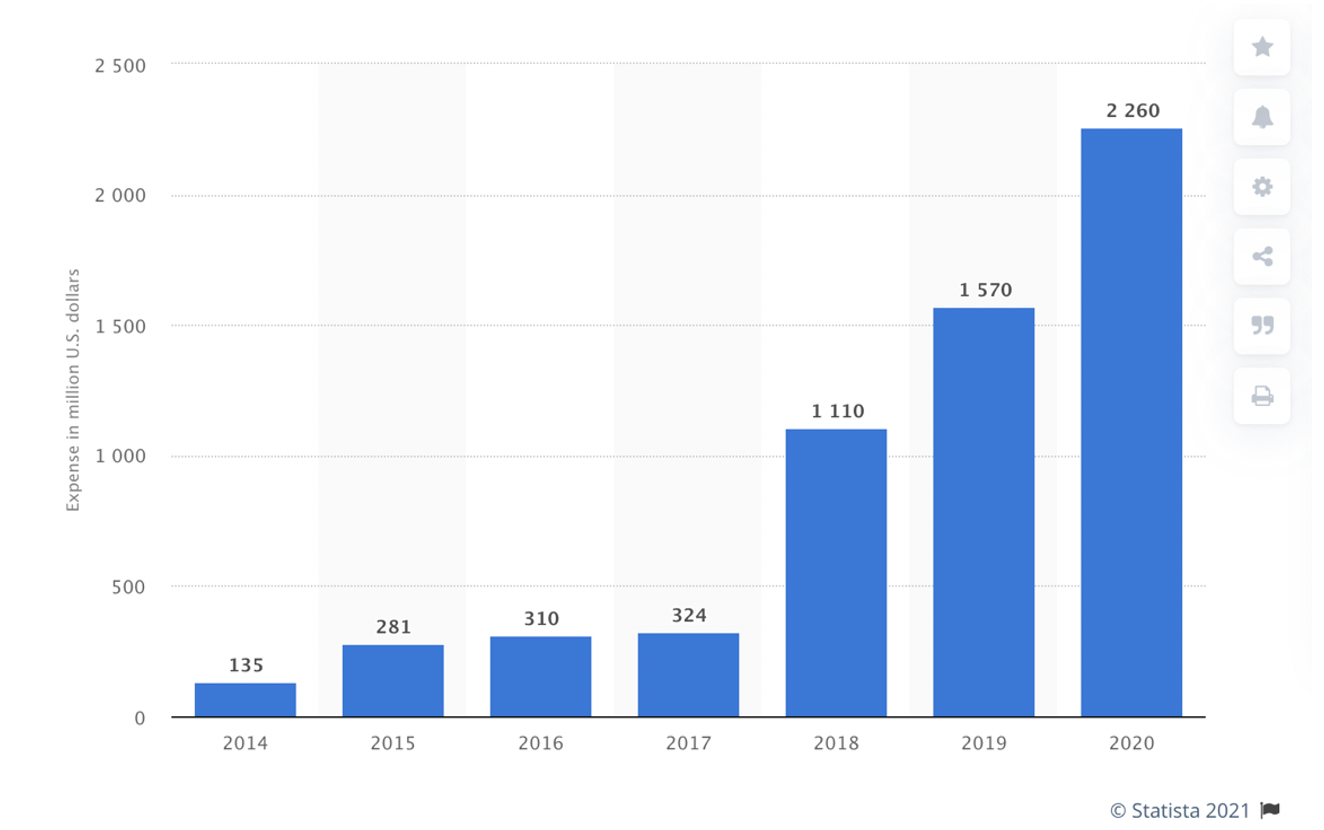Social channels may have been built to connect people – but the niceties of it are long gone. Now, social platforms are designed by Big Tech to be data-mining tools, serving up its users as consumers to brands that pay for the eyes on the screen. And it works. From 2014 to 2020, the ad spend on Facebook’s platforms (Facebook, Instagram and WhatsApp) alone has grown 16.7x, to a staggering $2.26B in 2020.
 (Image link: https://www.statista.com/statistics/685531/facebook-ad-expense/)
(Image link: https://www.statista.com/statistics/685531/facebook-ad-expense/)
Brands know the power of these platforms – but the problem is that the platforms own it all. The algorithm, the heart of how we see what we see when we see it (ad or not) is completely proprietary and brands are at the complete mercy of it. It is because of this complete lack of transparency that the big guys (including Twitter, Google / Youtube, etc) are under so much fire for their practices.
But what does that mean for brands – and the future of social?
Decentralization of social channels is just one potential solution to give people back some of the control over the content they see and let brands begin to curate for the people themselves, instead of working to solve the Big Tech Algorithm riddle.
CoinDesk recently covered the opportunities that come with decentralization and brought four basic principles to the table that would need to be considered if this is to be the future. The one that struck the biggest chord with us is the push to open source coding – “Code should be open source so that everyone has the ability to inspect and understand the algorithms that are putting images and videos in front of their eyes, people into their friendship circles, and texts and ideas into their minds”. (https://www.coindesk.com/decentralized-social-networks-next-big-blockchain-opportunity)
While this may sound like it is focused on the consumer, this change would be brilliant for brands. It is an opportunity for the creators, the builders, the designers, and the smaller brands that couldn’t compete against the multi-million-dollar social media big spenders of the world, to take some share and make a splash.
There are roadblocks for sure, and the scrutiny that a few of these first platforms, like Diaspora, Minds, and Mastodon have all come under is in big part due to this core principle to let users control the data. It is in direct opposition of Big Tech and their bottom lines. Without access to all the user’s data, they have nothing to sell.
One question this raises: If a platform doesn’t know about its users, how can brands use it to find their consumers?
The same way that people used to find and consume content that they liked, by joining communities they are interested in and searching for content that they find appealing. Brands enter the conversation in the same way, by creating content around their brand that connects them to the consumer and becoming a real part of the community and conversation. It is a chance for content not pocketbooks to become king again.
This strategy is not right for all brands, and there is a long way to go before decentralized platforms become more mainstream, but for those that can develop a content strategy that connects them to their user, these independent channels can create unique opportunities to reach their network without reliance on Big Data and their secret rules.
We look forward to continuing to watch the changes, and the freedom it presents to brands willing to test new waters.

